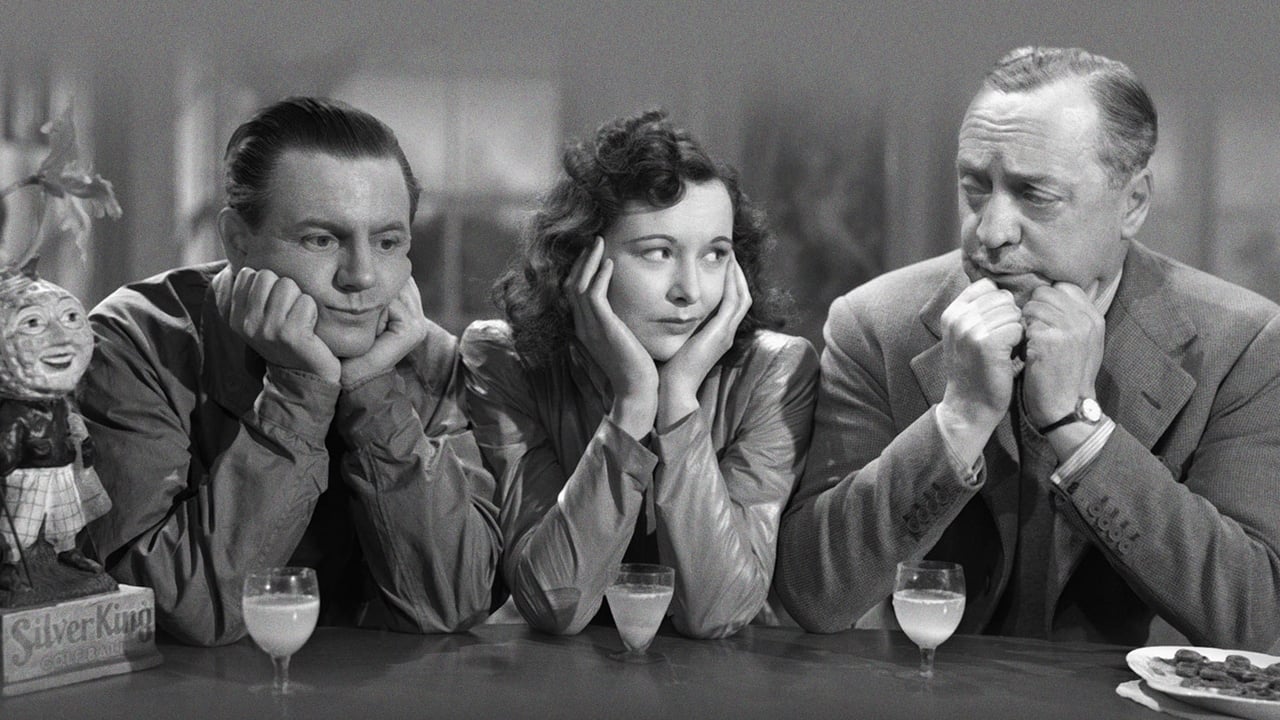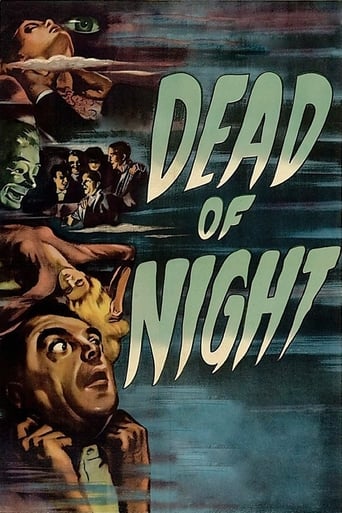



Sadly Over-hyped
Instead, you get a movie that's enjoyable enough, but leaves you feeling like it could have been much, much more.
View MoreThis is a must-see and one of the best documentaries - and films - of this year.
View MoreA film of deceptively outspoken contemporary relevance, this is cinema at its most alert, alarming and alive.
View MoreSo says one of the characters to a woman (Googie Withers) who has just related her story of "The Mirror", by far the most compelling in this rather variable collection of stories of mystery and horror. The over-arching story of the architect (Mervyn Johns) visiting a house full of strangers he has never seen before yet knows already, is rather redundant, really only providing a hook for the individual characters to tell their own stories. The tone, interest and quality of the stories is rather variable - humour perhaps included to provide lighter moments but instead allowing the mood to sag. The Michael Redgrave section with the dummy is too elaborate and contrived. But "The Mirror" is both the simplest of the stories and least star-studded yet incomparably most effective.Why it is so effective is difficult to say. Was it the excellent casting? Partly. But there must be some elemental fear at seeing an entirely different image reflected in a mirror. Here the subtle but critical difference is the burning fire in the grate - the room seen in the mirror is in use, is occupied and at any moment a figure could come into view - but who or what? The audience almost as much as the character finds it both difficult to look at the mirror yet almost more difficult, to look away.I'm pleased that, unlike some other reviewers, I didn't see this as a child and have a fear of mirrors thereafter. Meanwhile, I'll take that drink if its being offered - I could do with it.
View MoreEaling films, the warm and cosy home of lovingly crafted British comedies, branched out into slightly more unnerving territory with this early anthology. At a country house, in an age where, following communal afternoon tea, the local doctor likes to offer round the cigarettes, Walter Craig (Mervyn Johns) turns up and recognises the ensemble (none of whom he has ever met) from his recurring dreams.In this world, where everyone speaks in the clipped tones of racing horse commentators, ("I can't leave. This is Mr Craig and I'm a character in his dream." "Oh how do you do? Such fun, charades!") the anecdotal stories everyone tells merely confirm Craig's suspicions. He can see their future: he knows what is going to happen.I cannot knock a 72 year old production for being dated, so I won't. But it is. The extreme politeness and styles are often difficult to get past, even harder to take seriously. To begin with, such chills as there are are very tame and wholesome. The segment featuring the malevolent mirror is where things pick up, giving the impression 'Dead of Night' is unveiling its frights in a measured way. Until the following dreadful golfing farce sequence lets things down. "Totally incredible and decidedly improper," to quote Mrs Foley (Mary Merrall).If you can sit through that segment, the best and most widely remembered is saved till last. Maxwell Frere (Michael Redgrave) is a ventriloquist, performing and popular with packed audiences every night. So when it becomes apparent that the dummy Hugo appears to be the controlling element of the partnership, initially amusing music-hall scenes become genuinely tense. This is partly due to the writing, in which Hugo's comedy jibes to his partner become increasingly spiteful, and Redgrave's performance, in which the showbiz charade slips and he becomes edgy whilst still continuing with the act.The Director for this final segment is Alberto Cavalcanti, who eschews the brightly lit jollity of the other stories and coaxes an intense performance from Redgrave. To say this finale is the best of the bunch is understating things. In its way, it is a masterpiece.In case Walter Craig's plight has been forgotten in all this, the twist ending gives the film's climactic moments a nice sense of closure.
View MoreMervyn Johns (Walter) arrives at a secluded house and walks straight into a recurring dream. All the characters are familiar to him but he can't remember why. At the house gathering, Johns predicts what will happen throughout the course of the evening as various guests recount stories of the supernatural to try and disprove psycho-analyst Frederick Valk's (Dr Van Straaten) scientific diagnosis for all things mysterious. We get 5 stories before the ending which ties everything together. Spookily.This is an enjoyable film if you believe in supernatural things. As everyone normal knows, things outside of scientific explanation exist. This film throws a few examples at you. Interestingly, the story that is most spoken about and revered is the 5th story about the ventriloquist Michael Redgrave (Frere) and his dummy Hugo. This is performed well, pretty scary and also realistically psycho-scientific. By that I mean that there is a scientific reasoning that can be applied to the story. I studied psychology for 3 years before I realized that it's all a load of nonsense as they strive pointlessly to make it a scientific study. Like all things, it's probably common sense which is not measurable. The most realistic story is the often neglected 1st story about the car crash victim. Premonitions and dreams that relate to real life events DO happen and I have examples of my own that are too numerous to describe here.In between these two stories, the most memorable segment of the whole film for me is slotted in at number 3 - the haunted mirror. It's a story that portrays an unknowing evil that is relevant for me because I have actually experienced looking in a mirror and seeing something that I know isn't there but blatantly is because I'm looking at it! Again, this isn't the place to elaborate.The film does suffer from poor acting in parts – step forward Sally Ann Howes (Sally) from the Christmas ghost story – story number 2 - and Ralph Michael (Peter) as the husband in the mirror story – story number 3. The film loses a mark for the bad acting on these occasions and another mark for the comedy golfing story – story number 4. However, it has no real damaging effect on the overall experience of the Dead of Night. Check out that room in the mirror stuff . and the ventriloquist's dummy.
View More"Dead of Night" may be the first horror omnibus film, and it is still among the best. What makes the film work so well is that it doesn't rely on special effects and gore. Instead the horror is where it should be, in the mind of the beholder. What one sees is never as frightening as what one thinks one is going to see, or what one believes one is experiencing. In addition, just to keep the suspense from becoming unbearably oppressive, the grim proceedings are interrupted by a brilliant comedic turn by Basil Radford and Naunton Wayne (famous for their incomparable portrayals of Charters and Caldicott). Also, watch for Michael Redgrave as a ventriloquist dominated by his intelligent dummy in the first of several versions of this often-repeated story device.
View More